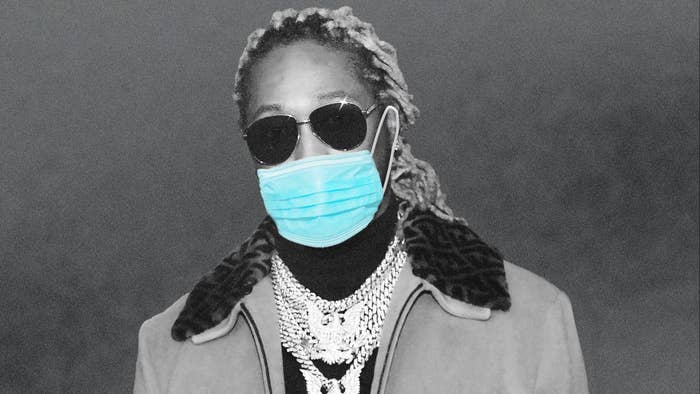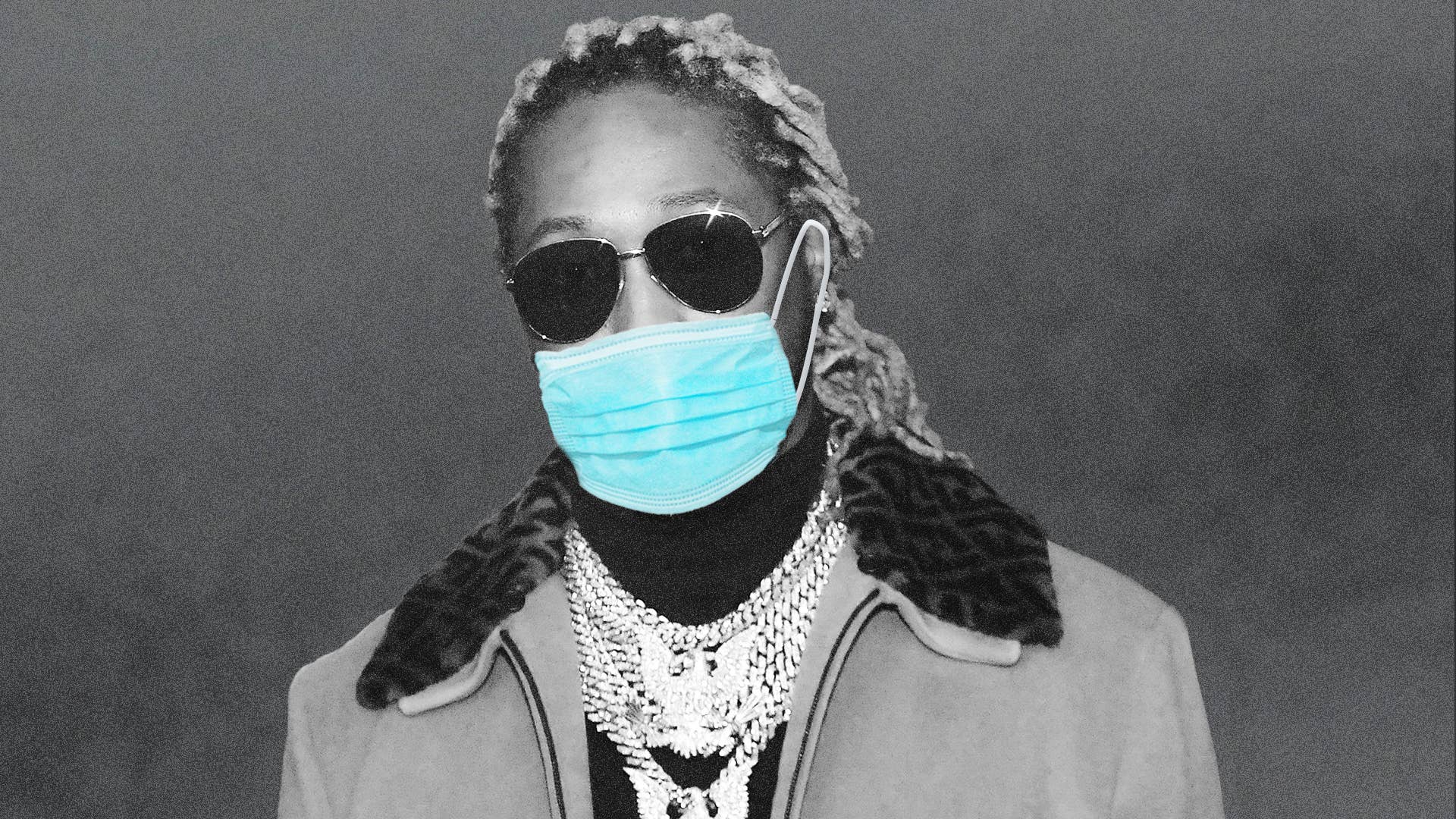
The FreeWishes Foundation, a charitable organization founded by Future, his mother Stephanie Jester, and his sister Tia Wilburn-Anderson 10 years ago, was in the process of prepping new initiatives for 2020 when the COVID-19 pandemic struck.
“The FreeWishes Foundation really strives all year long to give back to the community, so it kind of put a damper on what we already had been working on,” Wilburn-Anderson tells Complex, noting that the organization’s plans to help marginalized communities through events such as a health and wellness fair this summer.
When the pandemic hit, FreeWishes organizers were brainstorming ways they could still make a difference in their community when they started hearing about doctors who needed help.
“We started seeing stories about doctors saying they had to reuse their masks, and then some were getting infected because they didn’t have the proper equipment. That was alarming to us,” Abesi Manyando, Communications and Brand Strategist for FreeWishes says. “At first, we were thinking, could we order masks from somewhere? But there were absolutely no masks available—not the specific ones that the healthcare workers needed.”
Last month, Future and his FreeWishes Foundation launched the “Mask On” campaign, inspired by the rapper’s 2017 hit, “Mask Off.” While the campaign aims to inspire people to wear masks to protect themselves against the virus, it has evolved to directly respond to the shortage of face masks for medical workers and COVID-19 patients.
FreeWishes is collaborating with Atlanta Sewing Style, a local company in the Future’s hometown, to make and distribute masks to hospitals, relief centers, and other facilities in need. With a team of 500 sewists, FreeWishes and Atlanta Sewing Style have been working night and day to produce batches of medical-grade masks. They are based in the Atlanta Metro area, but Manyando confirms FreeWishes is distributing masks across the country. “We’re definitely going national,” Manyando says. “We’re sending masks to New York, and we’re giving masks to California too.”
As COVID-19 continues to spread, FreeWishes’ goals have shifted dramatically. “In the beginning we were like, ‘Let’s try to make 20,000 masks,’” Manyando remembers. “Then we put it on our website, and so many hospitals and health centers reached out to us.”
Both Manyando and Wilburn-Anderson recall countless emails and messages they received—from special needs centers in Los Angeles to children's facilities in major cities across the country—asking for supplies to combat the coronavirus. “I mean, we get overflowed with emails saying, ‘Hey, we are working every day on the front lines and we don’t have materials to protect us. We don’t have masks,’” Wilburn-Anderson says.
“We didn’t know how much of a need there was. The most heartbreaking thing for us has been the letters we get from doctors and nurses, and the pictures of how they are just risking their lives and going without,” Manyando adds.
“We’ve certainly reached hundreds of thousands of people.” - Abesi Manyando
Due to the overwhelming demand, they cannot confirm how many masks have been ordered or how many they have produced in the last month, but Manyando says the number is easily over 100,000. “Everything moves so fast,” she says. “Some orders that we have, we provided 5,000 masks and then 3,000 here, another 500 there. We’ve certainly reached hundreds of thousands of people.”
FreeWishes has also partnered with Project H.E.L.P USA/MRC, to help with COVID-19 medical relief efforts.
“[Project H.E.L.P.] has a team of 4,000 doctors,” Manyando explains. “They serve underserved communities in rural and urban areas where a lot of people aren’t able to go to the hospitals. A lot of people don’t have health insurance, and as you see, there’s a lot of cases and deaths in Latino and African American communities because of the disparities and lack of access. These doctors have been going to the rural communities, driving themselves. They’ve been testing people over the last month and a half. They’re not Piedmont Hospital; they’re not Johns Hopkins, so they don’t have the funding and [supplies] that they need.”
“He’s a provider. You may not listen to the surgeon general, but people connect with Future.” - Abesi Manyando
The mask orders continue to flow, and the biggest challenge right now is simply keeping up with them. The sewists need more materials to make the masks, so FreeWishes opened up donations to the public. “When they ran out of fabric [at one point], we went back to Future. He gave us more money and then we opened it up to people to contribute,” Manyando adds. “T.I. is contributing, Reggie Bullock with the New York Knicks gave a contribution as well. Other people have contributed $25 here, $100 there.”
FreeWishes is always looking for ways to help, even beyond the pandemic, Wilburn-Anderson says. “We’re always working and trying to figure out a way to give back to the community whether it’s health, technology, or education.”
In the coming months, the organization is looking to reach essential workers and minorities, two overlapping communities that are being hit by the virus at disproportionately high rates. “The people who get hit the worst are the underserved and minorities because those are the essential workers. It’s a war also, on social economics,” Manyando explains. “The foundation exists to be an asset to those communities, so we’re going to give all the bus drivers from MARTA, which are the Atlanta bus drivers, masks so that they can be protected and then they’re not getting infected and exposing people who ride the bus.”
While Future’s humanitarian efforts haven’t been widely publicized over the years, Manyando stresses that the FreeWishes Foundation is a “huge part of who [Future] is.”
“He’s a provider. You may not listen to the surgeon general, but people connect with Future. So hopefully they keep getting more support.”

